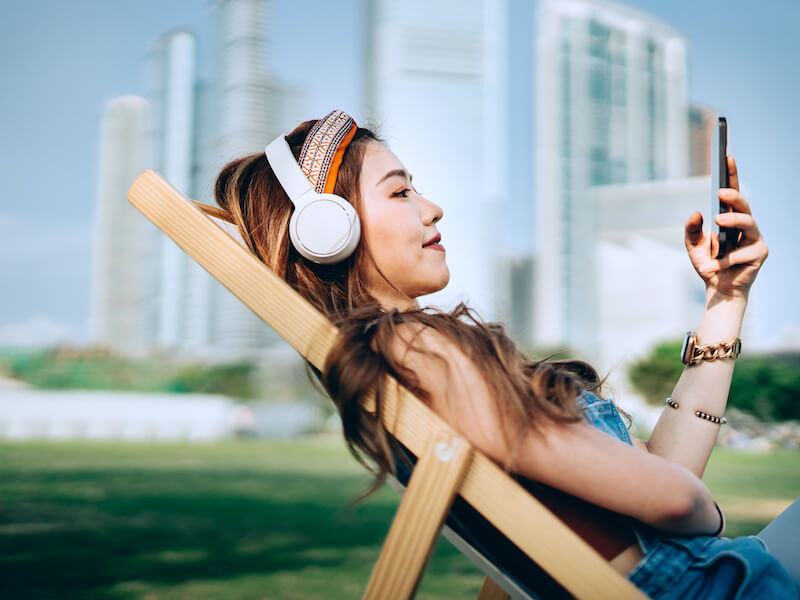
Aiden loves music. He listens to Spotify while working, switches to Pandora when jogging, and he has a playlist for everything: gaming, cooking, gym time, and everything else. His headphones are just about always on, his life a totally soundtracked event. But lasting hearing damage could be happening as a result of the very loud immersive music he loves.
There are ways to enjoy music that are healthy for your ears and ways that are not so safe. But the more hazardous listening option is usually the one most of us choose.
How can hearing loss be caused by listening to music?
As time passes, loud noises can cause deterioration of your hearing abilities. We’re used to thinking of hearing loss as a problem associated with aging, but more and more research suggests that it’s actually the accumulation of noise-induced damage that is the problem here and not anything intrinsic to the aging process.
It also turns out that younger ears are especially vulnerable to noise-related damage (they’re still developing, after all). And yet, the long-term harm from high volume is more likely to be disregarded by young adults. So there’s an epidemic of younger individuals with hearing loss thanks, in part, to high volume headphone use.
Can you enjoy music safely?
Unlimited max volume is obviously the “hazardous” way to enjoy music. But there is a safer way to enjoy your tunes, and it typically involves turning down the volume. The general guidelines for safe volumes are:
- For adults: Keep the volume at no more than 80dB and for no more than 40 hours per week..
- For teens and young children: You can still listen for 40 hours, but keep the volume level below 75dB.
Forty hours every week translates into about five hours and forty minutes a day. Though that might seem like a long time, it can seem to pass quite quickly. Even still, most individuals have a fairly reliable concept of keeping track of time, it’s something we’re taught to do efficiently from a very young age.
The more challenging part is monitoring your volume. Volume isn’t gauged in decibels on the majority of smart devices like TVs, computers, and smartphones. It’s calculated on some arbitrary scale. Perhaps it’s 1-100. Or it could be 1-10. You might not have any idea how close to max volume you are or even what max volume on your device is.
How can you listen to music while monitoring your volume?
It’s not really easy to tell how loud 80 decibels is, but fortunately there are some non-intrusive ways to know how loud the volume is. Distinguishing 75 from, let’s say, 80 decibels is even more perplexing.
That’s why it’s greatly suggested you use one of many cost-free noise monitoring apps. These apps, widely available for both iPhone and Android devices, will give you real-time readouts on the noises surrounding you. In this way, you can make real-time alterations while monitoring your real dB level. Your smartphone will, with the correct settings, let you know when the volume gets too loud.
As loud as a garbage disposal
Generally speaking, 80 dB is about as loud as your garbage disposal or your dishwasher. So, it’s loud, but it’s not too loud. Your ears will begin to take damage at volumes higher than this threshold so it’s a relevant observation.
So you’ll want to be extra mindful of those times at which you’re going beyond that decibel threshold. If you do listen to some music above 80dB, remember to minimize your exposure. Maybe listen to your favorite song at full volume instead of the entire album.
Listening to music at a loud volume can and will cause you to develop hearing issues over the long term. Hearing loss and tinnitus can be the consequence. Your decision making will be more educated the more aware you are of when you’re going into the danger zone. And safer listening will hopefully be part of those decisions.
Contact us if you still have questions about the safety of your ears.
